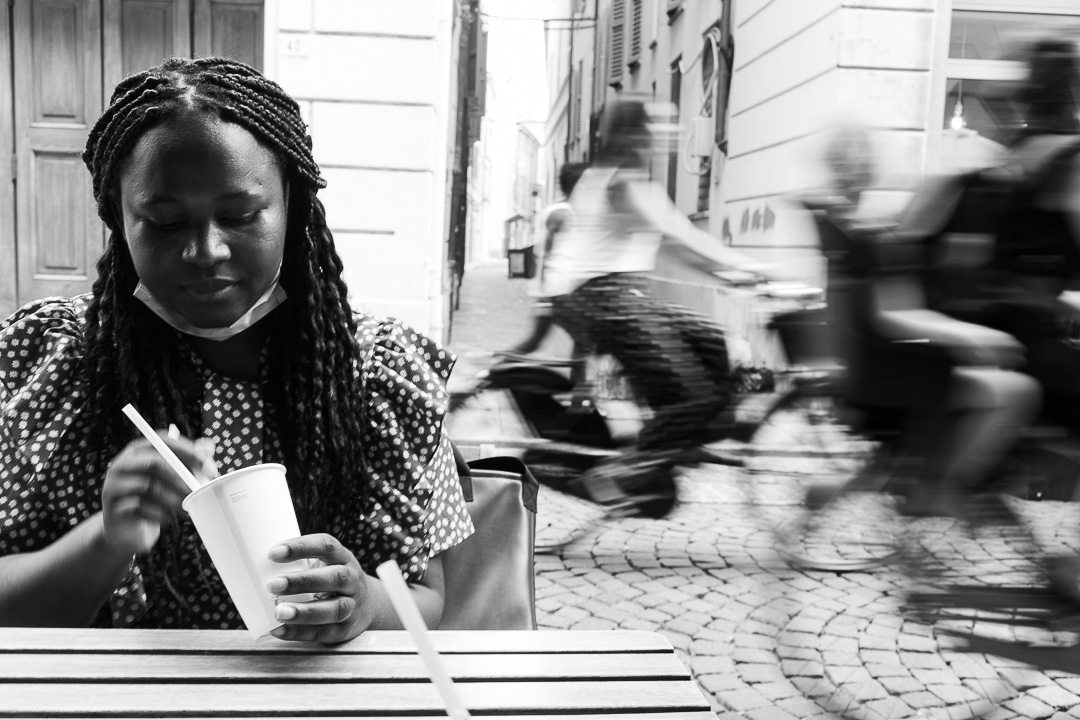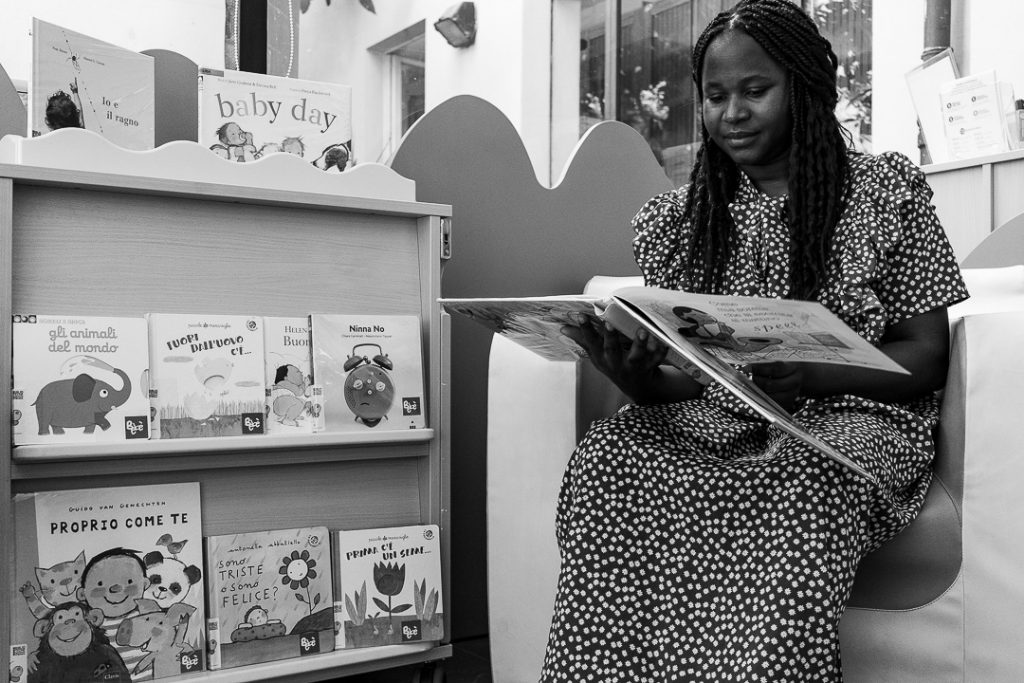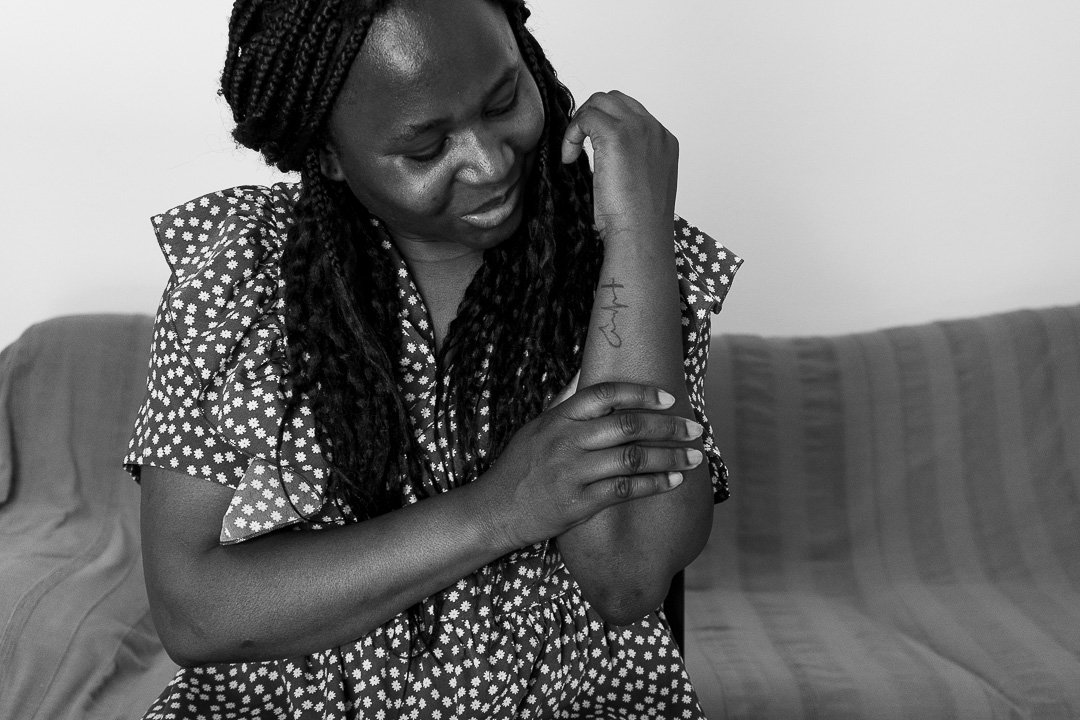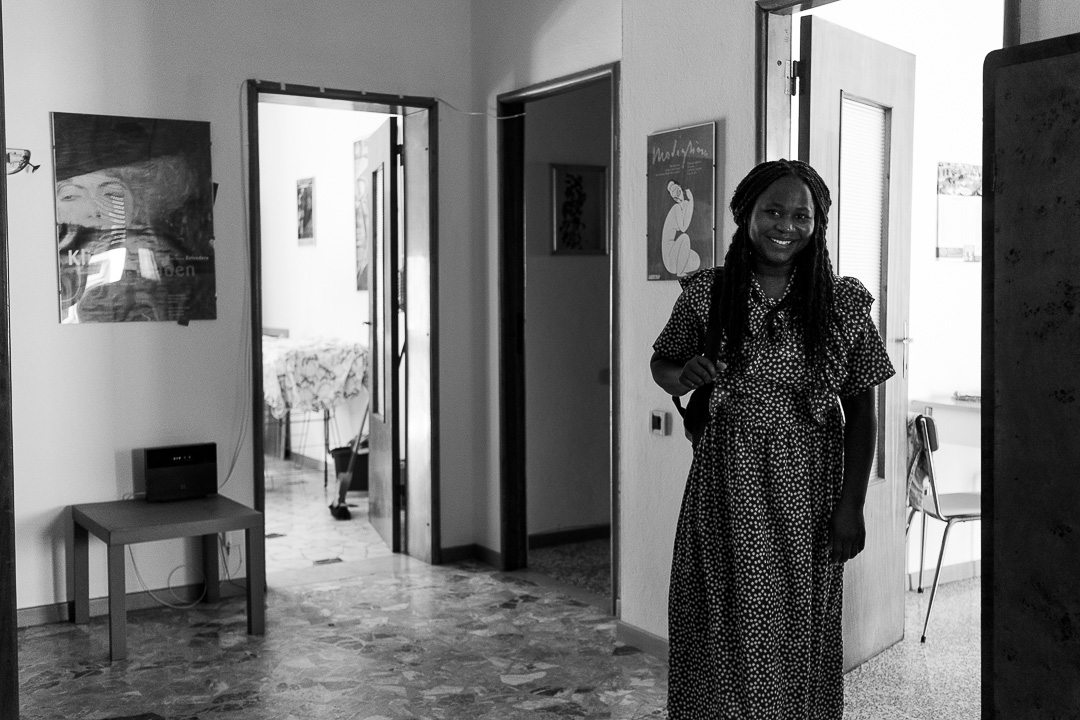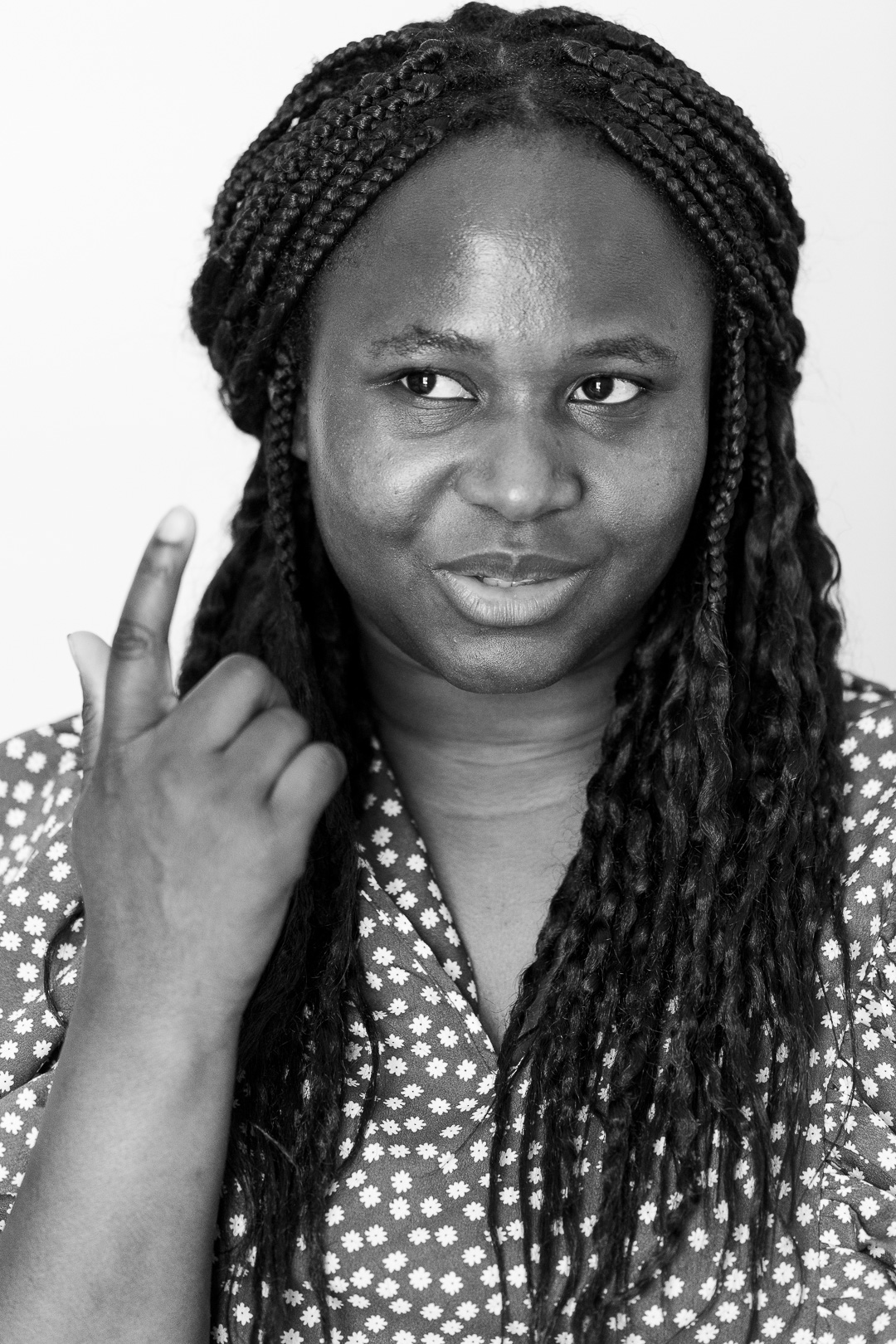My name is Edwige Guiebre and I was born in Adjame on August 17, 1988 from Burkinabe parents. From Burkina Faso, at the age of ten I moved with the whole family to Italy, to Pavullo nel Frignano. I am the second of four children, I have two sisters and a brother.
I attended all the schools in Pavullo, and then continued my training path at the Department of Education and Human Sciences. On November 14, 2018 I graduated as a nursery and early childhood services educator.
On 13 December of the same year I started working as a substitute teacher in schools. It is from this experience that the desire to write “The Brown Nanny” was born.
The children’s world is a magical world, full of colors and the interaction with the children was undoubtedly positive.
On the other hand, however, I found myself in an environment that does not seem to be ready for inclusion.
It is an environment where there is still the conception that to fill certain roles must be exclusively people of certain categories, in other words white. Yet the massive presence of foreign girls and boys in schools and early childhood services is evident and is constantly growing.
Then there is that sense of disorientation and uncertainty that diversity still generates in some. It is a reflection that arose spontaneously in me, finding it dangerous that the children of immigrants can receive the message that only white people can fill certain roles.
Instead I would like another message to arrive loud and clear: that they too, regardless of the color of their skin or the place of origin of their parents, can reach certain roles, if they apply themselves with tenacity and constancy.
The dream of teaching is very frequent in children of early childhood, and seeing people with whom they can identify with is important, as is also feeling represented through reference figures who resemble them.
I like my job as an educator a lot because it allows me to be in contact with children all day long. Doing a job that you love and for which you feel brought is an immense fortune.
My story comes from this personal experience of mine, in which I tried to exploit some episodes lived in the first person using an informal, simple and autobiographical language.
